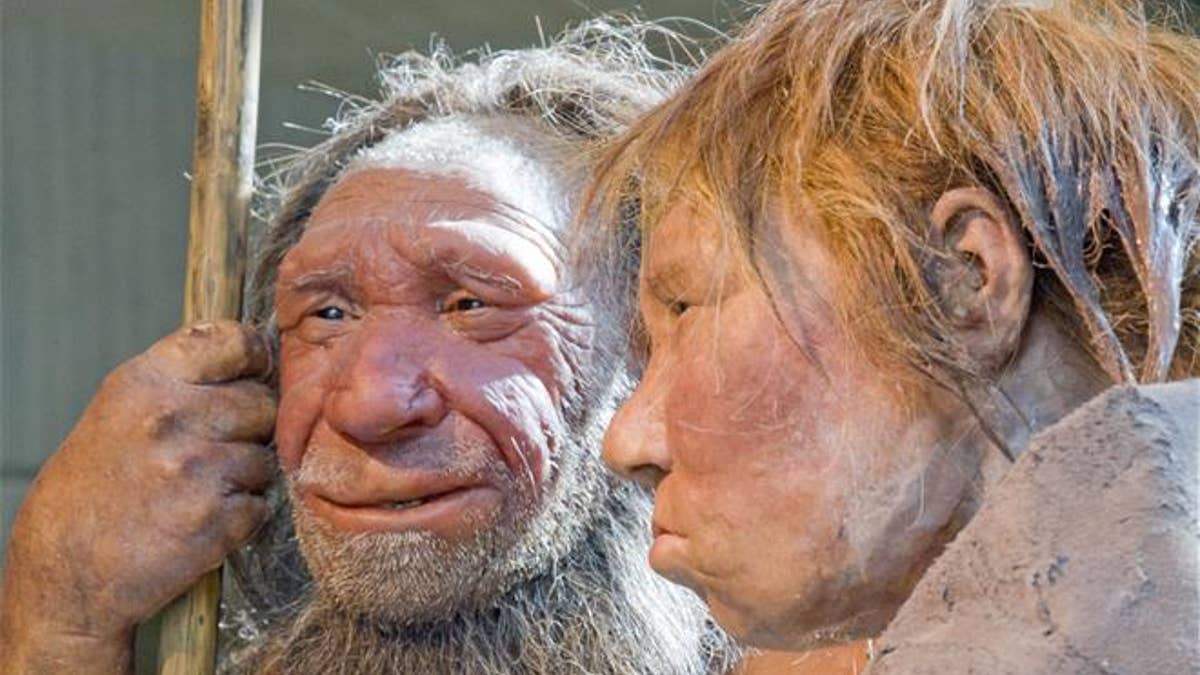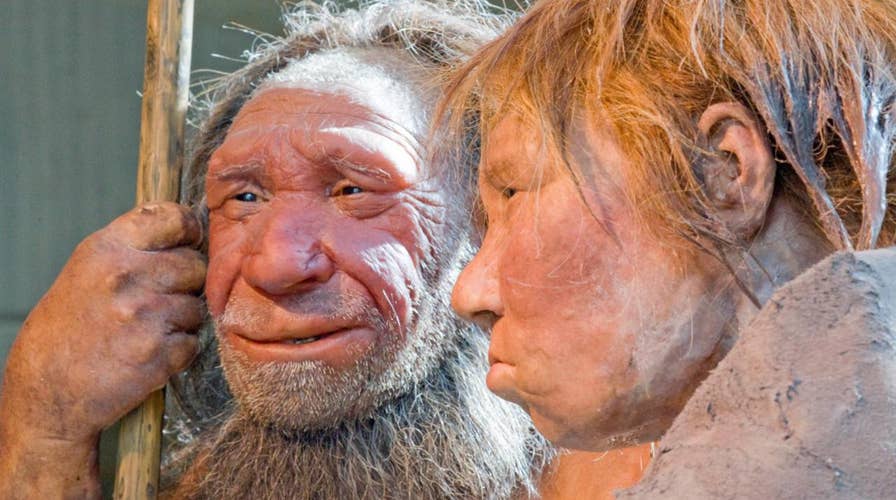Bones reveal Neanderthal child was eaten by large bird
Archaeologists in Poland have identified the prehistoric bones of a Neanderthal child, that appears to have been eaten by a large bird.
Researchers in Germany have sequenced the genome of a Neanderthal female who lived up to 80,000 years ago. High-quality genome sequencing has only been performed on the remains of two other Neanderthals, they say.
The research, which is published in the Proceedings of the National Academy of Sciences, was undertaken at the Max Planck Institute for Evolutionary Anthropology in Leipzig.
The Neanderthal remains were found in Chagyrskaya, about 66 miles from the Denisova cave in Siberia’s Altai Mountains where other famous Neanderthal remains were found and sequenced. Genome sequencing has also been performed on remains found in Vindija Cave in Croatia.
NEANDERTHAL DISCOVERY SHEDS NEW LIGHT ON HUMAN HISTORY
The researchers extracted DNA from bone powder and performed high-quality sequencing, they explained, in a statement. Scientists found that the Chagyrskaya Neanderthal lived about 60,000 to 80,000 years ago.

File photo - This March 20, 2009 photo shows reconstructions of a Neanderthal man named "N," left, and woman called "Wilma," right, at the Neanderthal Museum in Mettmann, Germany. (AP Photo/Martin Meissner)
After analyzing the variation in the genome they estimated that the female and other Siberian Neanderthals lived in small groups of less than 60 individuals. They also found that the Neanderthal was more closely related to the remains discovered in Croatia than to the other Siberian Neanderthal in Denisova who lived some 40,000 years before their Chagyrskaya counterpart.
This shows that, at some point, Neanderthal populations from the West replaced other Neanderthal populations in Siberia, the researchers said.
NEANDERTHAL BEACHCOMBERS WENT DIVING FOR SEASHELLS, SCIENTISTS DISCOVER
"We also found that genes expressed in the striatum of the brain during adolescence showed more changes that altered the resulting amino acid when compared to other areas of the brain", said Fabrizio Mafessoni, the study’s lead author, in the statement.
This means that the part of the brain that coordinates various aspects of cognition, such as planning, decision-making, motivation and reward perception, may have played a unique role in Neanderthals, according to the researchers.
Experts have gained fresh insight into Neanderthals in recent years. In a separate project, scientists at Princeton University made a stunning Neanderthal ancestry discovery that sheds new light on human history.
GRISLY DISCOVERY: BONES REVEAL NEANDERTHAL CHILD WAS EATEN BY LARGE BIRD
Neanderthal DNA has typically been associated with modern humans outside of Africa. However, by developing a new method for finding Neanderthal DNA in the human genome, the Princeton researchers for the first time, searched for Neanderthal ancestry in African populations, as well as those outside the African continent.
Researchers found that Neanderthal ancestry in Africans was not due to an “independent interbreeding event” between Neanderthals and African populations. Instead, they came to the conclusion that migrations of ancient Europeans back into Africa introduced Neanderthal ancestry into populations in the African continent.
In 2018, in another project, archaeologists in Poland identified the prehistoric bones of a Neanderthal child eaten by a large bird.
CLIMATE CHANGE DROVE SOME NEANDERTHALS TO CANNIBALISM
In another study released in 2018, scientists suggested that climate change played a larger part in Neanderthals’ extinction than previously thought.
Last year, researchers in France reported that climate change drove some Neanderthals to cannibalism.
In another study, experts studied seashells fashioned into tools that were discovered in Italy in 1949 to reveal how some Neanderthals had a much closer connection to the sea than was previously thought, according to a statement released by the University of Colorado Boulder.
CLICK HERE TO GET THE FOX NEWS APP
The closest human species to homo sapiens, Neanderthals lived in Eurasia for around 350,000 years. Scientists in Poland report that Neanderthals in Europe mostly became extinct 35,000 years ago. However, there are a number of theories on the timing of Neanderthals’ extinction, with experts saying that it could have occurred 40,000, 27,000 or 24,000 years ago.
Fox News’ Chris Ciaccia contributed to this article.
Follow James Rogers on Twitter @jamesjrogers









































